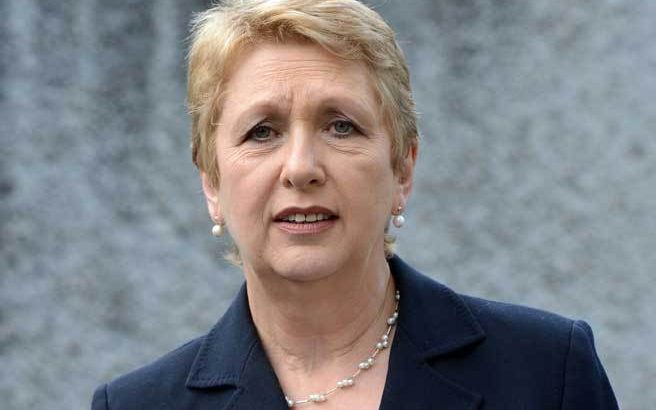The View
The role of the loyal critic is a vital one in the Church. Many times in its history, the Church has lost its way and been recalled to it through the action of the Holy Spirit working through women and men.
President emeritus Mary McAleese clearly sees herself as part of that tradition, stating on a recent Today with Seán O’Rourke RTÉ radio show that it is her canonical right and duty to offer opinions on the Church where she feels it will be of help.
When she was asked about her intemperate language, she invoked Catherine of Siena who described priests as “leprous vipers”.
It is true that Catherine’s letters are full of language that seems extreme to modern eyes.
Yet Catherine of Siena is one of only four women who are declared Doctors of the Church, and the only laywoman. The title, Doctor of the Church, is given to saints who are judged to have made a particularly important contribution to our understanding of faith and theology. Hildegard of Bingen was recognised by Benedict XVI in 2012 as a doctor.
Hildegard was not above caustic commentary in her numerous letters, either. She felt that the Church had grown soft, lazy and corrupt and it was her duty to bring it back to the true path.
Global carrier
When Seán O’Rourke mildly queried whether calling the Catholic Church “a global carrier of the virus of misogyny”, and declaring that its view on women was “codology dressed up as theology” was helpful, Mary McAleese tartly enquired whether there was a book somewhere of appropriate phrases for ex-Presidents, because she had never heard of one.
She has also been widely criticised for saying that she hoped that those inside the Vatican had their hearing aids turned on, but I cannot believe that she meant this in any way to be offensive to people with hearing loss.
She has always been aware of and helpful to the deaf community, which is probably connected to the fact that she has one brother who is profoundly deaf since birth and another who suffered hearing loss working for the Air Corps.
Tragically, she also discovered recently that her baby brother, as she described him, Clem Leneghan, had been sadistically psychologically and physically abused by Malachy Finnegan, a priest who was a child abuser. Her 90-year-old mother read about it in the Belfast Telegraph.
It was the only time that her voice faltered during the interview and it was heart-breaking to hear of yet another family damaged by a priest’s crimes.
As an eldest child and eldest daughter in a family with nine children, Mary McAleese obviously felt shattered not only by the abuse by a trusted priest but by the fact that her youngest brother had not felt able to confide in anyone about the torture he was experiencing.
Mary McAleese has a point about the Church, not that it is a global carrier of the virus of misogyny, because it is not and in fact champions the education of women, but because it neglects the gifts of women when it comes to leadership.
As I mentioned, some women in the Church in the Middle Ages, particularly abbesses, were powerful, influential women. When you look at Hildegard of Bingen, it seems that the role of women has gone backwards since medieval times. Hildegard was the founder of two abbeys of women. She undertook four preaching tours because of her reputation as a prophet.
She was a mystic, a visionary, a herbalist, a composer, a teacher – such were her accomplishments that someone once declared of her that the first Renaissance man was a woman.
And some, like Catherine of Siena, were laywomen but also had immense influence. The Church’s big problem is not misogyny – it is clericalism. There is no reason why, as Mary McAleese put it, that the Church could not “find innovative and transparent ways of including women’s voices as of right”.
But I suspect that laymen are not thrilled with their role, either. As one completely orthodox layman said to me recently, “the Church is an ordained boys’ club”.
It was never meant to be that. There is no reason why women could not be influential figures in the Vatican Curia, or chancellors of dioceses, or heads of Episcopal Commissions, or for that matter, why lay men should not be, either.
Mary McAleese has valid criticisms of Church practices, but some of her criticisms veer into the territory of failing to respect centuries of Church teaching.
It is there that she parts company with Catherine of Siena and Hildegard of Bingen. Both these women were critics but were also completely orthodox.
Being a loyal critic of the Church also means being a loyal guardian of the treasure she has been bequeathed.


 Breda O'Brien
Breda O'Brien President emeritus Mary McAleese
President emeritus Mary McAleese 